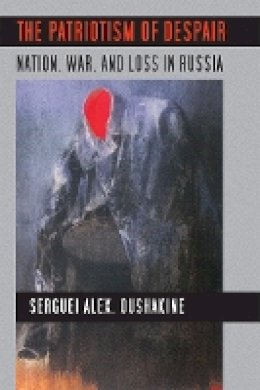
The Patriotism of Despair: Nation, War, and Loss in Russia
Serguei Alex. Oushakine
The sudden dissolution of the Soviet Union altered the routines, norms, celebrations, and shared understandings that had shaped the lives of Russians for generations. It also meant an end to the state-sponsored, nonmonetary support that most residents had lived with all their lives. How did Russians make sense of these historic transformations? Serguei Alex. Oushakine offers a compelling look at postsocialist life in Russia.
In Barnaul, a major industrial city in southwestern Siberia that has lost 25 percent of its population since 1991, many Russians are finding that what binds them together is loss and despair. The Patriotism of Despair ... Read more
Oushakine offers a compelling look at postsocialist life in noncosmopolitan Russia. He introduces readers to the "neocoms": people who mourn the loss of the Soviet economy and the remonetization of transactions that had not involved the exchange of cash during the Soviet era. Moving from economics into military conflict and personal loss, Oushakine also describes the ways in which veterans of the Chechen war and mothers of soldiers who died there have connected their immediate experiences with the country's historical disruptions. The country, the nation, and traumatized individuals, Oushakine finds, are united by their vocabulary of shared pain.
Show LessProduct Details
About Serguei Alex. Oushakine
Reviews for The Patriotism of Despair: Nation, War, and Loss in Russia
